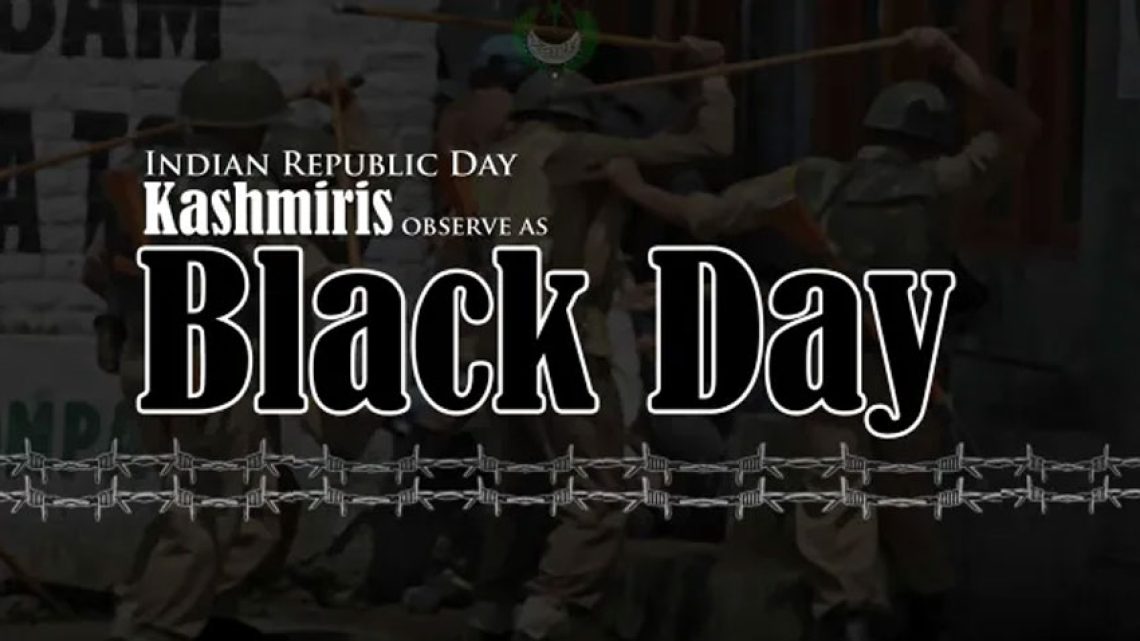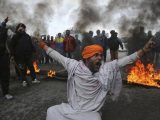
Kashmiris Mark India’s Republic Day as Black Day
January 19, 2024Posters have surfaced in the Indian illegally occupied Jammu and Kashmir (IIOJK), calling on the populace to pay homage to martyrs and observe India’s Republic Day on January 26 as a Black Day. Posted on pillars, poles, and walls across various regions of the territory, these posters, endorsed by the All Parties Hurriyat Conference and other Hurriyet organizations, articulate a collective protest against what they term as India’s forcible occupation of their homeland.
The posters deem the so-called Indian Republic Day celebrations in IIOJK as a cruel jest. Issued by Hurriyat organizations, they convey a resolute message that the people of Kashmir consistently reject India’s illegal occupation. Shared on social media platforms, the posters also encourage individuals to offer special prayers on the anniversaries of the Kashmiri martyrs.
Haseeb Wani, the spokesperson for the Jammu Kashmir National Front, released a statement in Srinagar urging the Kashmiri populace to observe India’s Republic Day as a Black Day. He asserted that a country that has systematically denied the basic rights of Jammu and Kashmir residents has no grounds to celebrate its Republic Day within the occupied territory.
Condemning India’s prolonged illegal and forced occupation of Jammu and Kashmir, Wani highlighted the extensive violation of the political and democratic rights of Kashmiri people by Indian forces over several decades. Despite assurances of conducting a free and impartial plebiscite to determine the political destiny of Kashmir, the Indian rulers, he claimed, have consistently employed violent means to suppress the legitimate aspirations of the Kashmiri people.
Wani’s plea extended to the international community, urging them to take serious note of India’s illegal occupation of Kashmir, which he identified as the primary cause of unrest in the region. The statement underscored the ongoing need for global attention and intervention in addressing the longstanding issue, emphasizing the importance of upholding the fundamental rights and aspirations of the Kashmiri people.
As the posters and statements circulate, they reflect the prevailing sentiments within IIOJK, illustrating a collective desire for self-determination and the international community’s involvement to rectify what is perceived as an unjust and enduring occupation.

